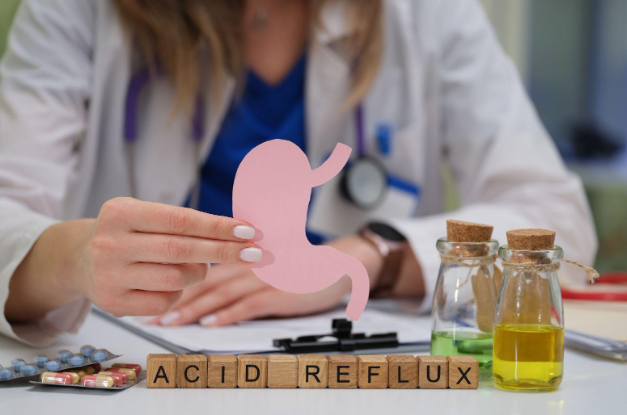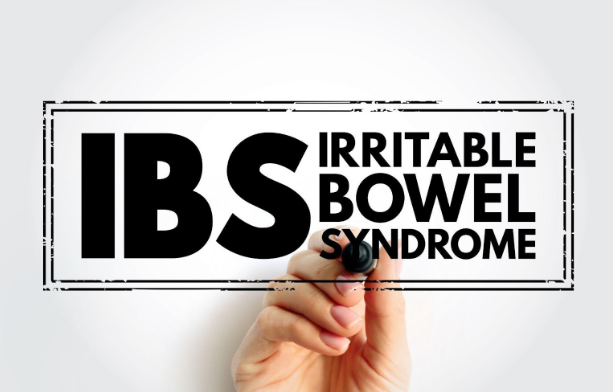How Do You Know If You Have Irritable Bowel Syndrome (IBS)?

Have you ever experienced ongoing stomach pain, bloating, or irregular bowel movements that just don’t seem to go away? If so, you might have found yourself wondering if you have IBS (irritable bowel syndrome). IBS is a gastrointestinal disorder that affects 5–10% of the entire world’s population, yet it can be tricky to identify because its symptoms often overlap with other conditions.
What is Irritable Bowel Syndrome (IBS)?
Irritable bowel syndrome is a condition that chronically affects the large intestine. It’s classified as a functional gastrointestinal disorder, which means that while the digestive system appears normal in structure, it doesn’t function properly. IBS isn’t life-threatening, but it can be quite uncomfortable and significantly impact your quality of life.
There’s no single known cause of IBS, which makes it a bit of a mystery. However, a combination of factors contributes to its development, including the following:
Gut-Brain Interaction
The gut and brain are intricately connected through a complex network of nerves known as the gut-brain axis. Disruptions in this communication, often triggered by stress, anxiety, or other psychological factors, can lead to the abnormal gut motility and heightened pain sensitivity seen in IBS patients.
Intestinal Muscle Contractions
Normally, the muscles in your intestines contract rhythmically to move food through your digestive tract. However, in people with IBS, these contractions can become erratic—either too strong, causing food to move too quickly and leading to diarrhea, or too weak, resulting in slowed digestion and constipation. This irregular muscle activity can lead to the uncomfortable cramping and bloating that many people with IBS experience.
Inflammation
Although IBS is not an inflammatory bowel disease (like Crohn’s or ulcerative colitis), some individuals with IBS may have low-grade inflammation in the intestines. This inflammation can contribute to pain and other symptoms by irritating the gut lining and affecting its normal function.
Infections
A severe bout of diarrhea caused by bacteria or a virus (gastroenteritis) can sometimes trigger IBS, a condition known as post-infectious IBS. The exact reason why certain infections lead to long-term IBS symptoms is not fully understood, but it may involve lingering changes in gut flora or immune system responses.
Changes in the Gut Microbiome
The gut microbiome consists of trillions of bacteria that help with digestion, immune function, and overall health. An imbalance in these bacteria—such as a decrease in beneficial bacteria or an overgrowth of harmful ones—can disrupt digestive processes, leading to the symptoms associated with IBS.
Common Symptoms of IBS
The symptoms of IBS can come and go ranging from mild to severe, which means they vary from person to person. Here are the more common signs that might indicate you have the condition:
Abdominal Pain and Cramping
This discomfort usually occurs in the lower abdomen and is often relieved by having a bowel movement. The pain can be constant or intermittent, usually described as a cramping sensation.
Bloating and Gas
Feeling bloated is another common complaint among people with IBS. Bloating is that uncomfortable sensation of fullness or swelling in your abdomen, often accompanied by increased gas. This can make you feel like your belly is puffed up, sometimes to the point where your clothes feel tight.
Changes in Bowel Movements
IBS often causes noticeable changes in bowel movements, with said changes typically falling into three categories:
- Diarrhea-Predominant IBS (IBS-D): You may experience frequent, loose, or watery stools.
- Constipation-Predominant IBS (IBS-C): You might have infrequent, hard, or lumpy stools that are difficult to pass.
- Mixed IBS (IBS-M): Some people alternate between diarrhea and constipation.
Urgency and Incomplete Evacuation
With IBS, you might feel an urgent need to have a bowel movement, even if it’s inconvenient or you’re not near a bathroom. This urgency can sometimes be followed by the sensation of incomplete evacuation, where you feel like you haven’t fully emptied your bowels even after going to the bathroom.
Mucus in Stool
Another symptom of IBS is noticing mucus in your stool. Mucus is a clear, jelly-like substance that your intestines naturally produce, but if you have IBS, you might see more of it than usual in your bowel movements.
Fatigue and Difficulty Sleeping
IBS can also take a toll on your overall well-being. Many people with IBS report feeling fatigued or having trouble sleeping. The constant discomfort and the anxiety about when symptoms might strike can disrupt your sleep and leave you feeling drained during the day.
How Do I Know If I Have IBS?
Determining whether you have IBS can be challenging because its symptoms overlap with those of other gastrointestinal disorders. However, there are a few steps you can take to get closer to an answer:
Keep a Symptom Diary
One of the best ways to figure out if you have IBS is to keep a detailed symptom diary. Track what you eat, how your body reacts, and any other symptoms you experience by noting the answers to these questions:
- When does abdominal pain or cramping occur? What seems to trigger it? How severe is it?
- What is the frequency, consistency, and appearance of your stools? Is there a pattern?
- How often do you feel bloated? Does it seem to correlate with certain foods or activities?
- Are you feeling fatigued? Do you notice mucus in your stool? Any other unusual symptoms?
This diary will be incredibly useful when you visit your healthcare provider, as it can help them better understand your symptoms and identify any patterns.
Consult a Healthcare Provider
If you suspect you have IBS, the next step is to consult a healthcare provider, such as a gastroenterologist. They will review your medical history, discuss your symptoms, and may perform a physical examination.
There’s no specific test to diagnose IBS, so a diagnosis is often made based on the exclusion of other conditions. Your doctor may order tests to rule out other issues, such as:
- Blood test: to check for signs of infection, inflammation, or anemia.
- Stool tests: to look for infections or other abnormalities.
- Imaging tests: X-rays, CT scans, or ultrasounds to check for structural issues in the digestive tract.
- A colonoscopy: allows your doctor to examine the inside of your colon to rule out conditions like Crohn’s disease or ulcerative colitis.
If no other underlying conditions are found and your symptoms match the criteria for IBS, your doctor may diagnose you with IBS.
Understand the Rome IV Criteria
Doctors often use a set of guidelines known as the Rome IV criteria to diagnose IBS. According to these criteria, IBS can be diagnosed if you’ve experienced abdominal pain or discomfort at least one day a week for the past three months and if this pain is associated with at least two of the following:
- Pain related to defecation: The pain either improves or worsens with a bowel movement
- Changes in stool frequency: You’ve noticed a change in how often you have bowel movements.
- Changes in stool form or appearance: You’ve observed differences in the consistency or appearance of your stools.
It’s important to note that these criteria are used by healthcare professionals and are just one part of the diagnostic process. Your doctor will consider your overall health, medical history, and any other symptoms before making a diagnosis.
Rule Out Other Conditions
Because IBS shares symptoms with many other gastrointestinal disorders, it’s essential to rule out other conditions before confirming an IBS diagnosis. Some conditions that can mimic IBS symptoms include:
- Celiac Disease: An autoimmune disorder where consuming gluten damages the small intestine.
- Crohn’s Disease and Ulcerative Colitis: Types of inflammatory bowel disease (IBD) that cause chronic inflammation in the digestive tract.
- Diverticulitis: Inflammation or infection of small pouches (diverticula) that can form in the walls of the digestive tract.
- Lactose Intolerance: The inability to digest lactose, a sugar found in dairy products, leading to digestive symptoms.
- Small Intestinal Bacterial Overgrowth (SIBO): An excessive growth of bacteria in the small intestine that can cause bloating, diarrhea, and other symptoms.
Your doctor will likely perform tests to rule out these conditions before diagnosing IBS.
Consider Your Triggers
Another way to determine if you have IBS is to consider your triggers. Certain foods, stress, and hormonal changes can all trigger IBS symptoms. If you notice that your symptoms flare up after eating specific foods, during periods of stress, or around your menstrual cycle (for women), this could be a sign of IBS.
Common food triggers include:
- Dairy Products: Lactose can be hard to digest for some people, leading to bloating, gas, and diarrhea.
- Gluten: Found in wheat, barley, rye, and certain oats, gluten can cause symptoms in some people with IBS, even if they don’t have celiac disease.
- High-FODMAP Foods: FODMAPs are short-chain carbohydrates that are poorly absorbed in the gut. Foods high in FODMAPs include certain fruits, vegetables, and legumes.
- Fatty Foods: Greasy or fatty foods can slow digestion and trigger symptoms like bloating and diarrhea.
- Caffeine and Alcohol: Both can irritate the gut and worsen IBS symptoms.
Our experienced team at
Northlake Gastroenterology can help you with all your IBS needs.
Contact us today to request an appointment!
More Blogs












